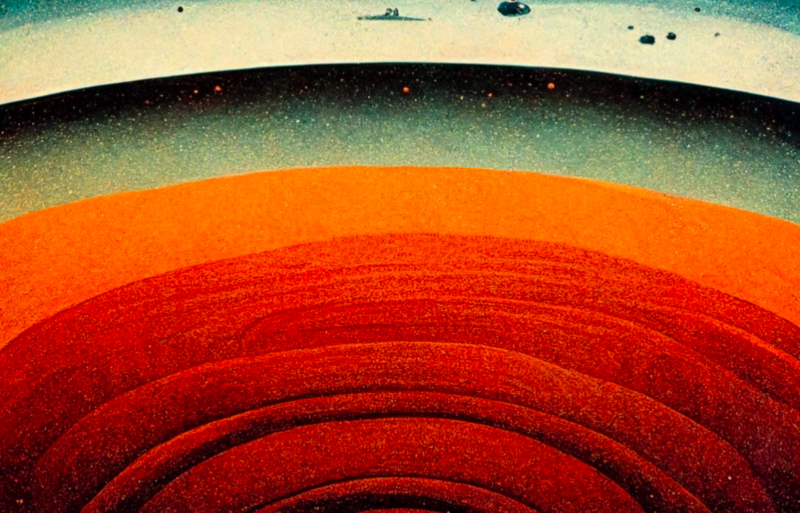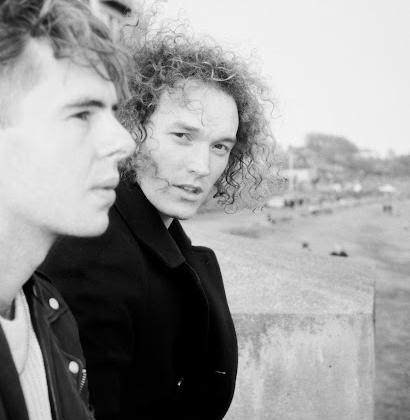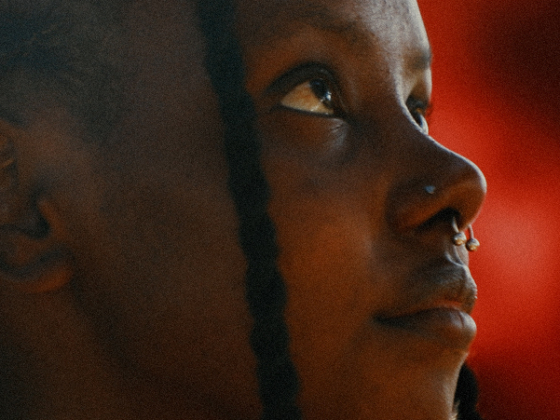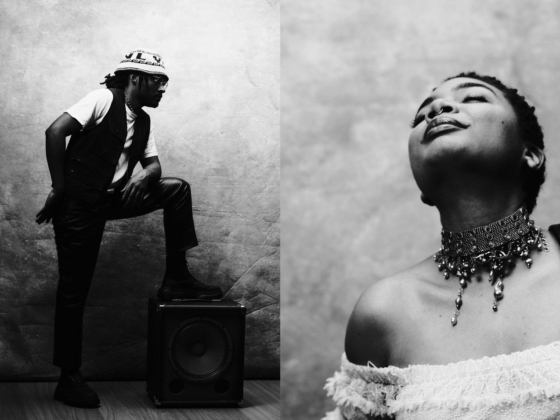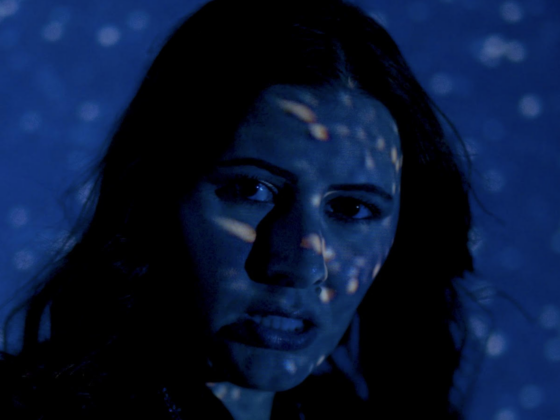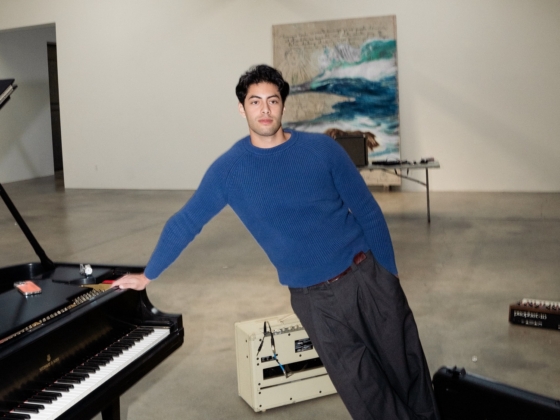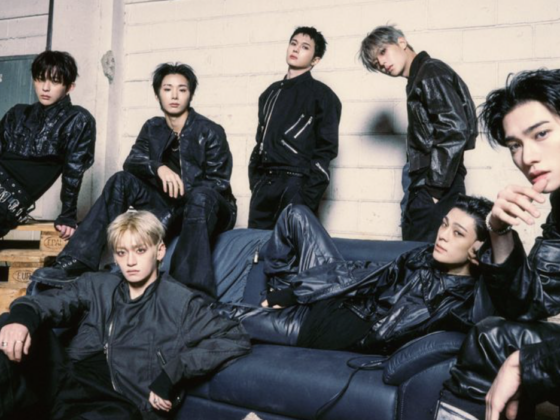Electronica duo Sun Lo, a collaborative project between Canadian producer ATTLAS and acclaimed British vocalist Richard Walters delve into the evolution of AI technology and its impact on our daily lives on forthcoming debut album Shapes In My Head –with ethereal number “Heights,” giving us a glimpse of the futuristic concept they’re set to explore.
The pair who are set to weave an intricate journey on their album, based on Kazuo Ishiguro's best-selling novel Klara and the Sun, chat to Earmilk about the influence of AI in music, their inspiration behind single “Heights,” and how their collaborative project came about, as they further amp up the anticipation for the album with upcoming single “Never Learned.”
What inspired you to craft a project around Kazuo Ishiguro's best-selling novel Klara and the Sun?
Richard: I needed a lyrical jumping off point and I think my head was a little wrung out to get into anything too confessional or personal. I adored the book, read it twice in quick succession, and it seemed to give me the blueprints for an emotional story arc just at the right time. It became an interesting starting point, exploring human emotion from another perspective, with these strange AI blinkers on.
What sort of balance does the album strike between the real-life influence of AI and the Kazuo Ishiguro novel? Which one has more influence, and what was the process of crafting the project?
Jeff: While the final product is definitely a complete work that draws upon those influences, I'd say that my own influences were inevitably a little broader, just given the way I approach the production and composition process. Realistically, I couldn't talk about Sun Lo without feeling very much that it's a result of the pandemic as well. And grandly speaking perhaps AI or at least our relationship with AI was accelerated by the pandemic. Isolated in our rooms, relating to each other through screens and technology. Emotions, friendships, jobs, down time – we were in our rooms alone but trying to retain something human out of it all. We get used to feeling human but essentially engaging solely with technology. For me, that's equally as descriptive as the pandemic as it is AI. My creative process is typically pretty self-analytical (at least in retrospect). I write what I feel or what I'm going through – music as journal entry, therapy session or whatever.
Richard: I guess the words on the album are very much focussing on the emotions and human elements of AI, the replication of those feelings, rather than any technical aspects. There's no science to see here! I became pretty fascinated with the idea of an ultra-intelligent, almost too smart, being trying to find functional reasoning in something as unpredictable and unknown as love or fear or mortality.
How did the dreamy, beat-driven soundscape of Sun Lo evolve from the futuristic theme of AI?
Jeff: I didn't approach my creativity responsibilities overtly influenced by AI, but of course alongside the pandemic and the subsequent flood of 'online living' the world was thrust into, it inevitably comes out in the music. The writing took place when I had left my Toronto apartment, there were no vaccines in trials yet, and everyone's friendships were with computers (or 'through' computers, but I reckon that distinction is getting blurrier by the second). While I had experience in the live electronic/DJ space, those spaces didn't exist at the time any more. So listening was at home, more personal, more intimate. It wasn't loud in packed rooms with lights and drinks and strangers, it was lonely and contemplative. An effort was made to make it feel more human than a dance/beat driven work, almost as a way of holding onto something real and human in a time period that resembled nothing I had lived before.
Richard: For me, Jeff's ATTLAS records sound like the soundtrack to an incredible, unmade Sci-fi film, so it made sense to have this storyline working with his beautiful, futuristic production.
How did the collaboration between ATTLAS and Richard Walters come about?
Jeff: Richard took the first conversational leap and it led to demos, talks about life and family, sharing books and movies and songs. Going back and forth, there was a nice pocket of sound that felt authentic to who we both are, but also unique enough that it deserved pursuing beyond a one-off collaboration. Once we started really gathering the project into a place of more cohesion, it felt more fitting to give the work its own name – Sun Lo.
Richard: Someone sent me a link to the ATTLAS album 'Out Here With You' during lockdown and it became a permanent fixture, almost a part of my day. I was a big fan and the magic of social media made it possible to let him now. We ended up chatting and eventually emailing back and forth. Correspondence song writing is one of the greatest things ever, in my opinion, and everyone should try it.
Tell us a bit more about the latest single, "Heights," and the message behind it as well.
Jeff: For 'Heights' I was going with Richard's answer there, as I felt the question and response were best left to the lyrical world of that track. On my creative side, it's a bit less interesting to say it was the result of workshopping demos and ideas into something that Richard felt inspired by, then filling in the production and musical ideas around the melodies and lyrical decisions he made. However, feel free to include that if it helps connect with the project and push new listeners towards it.
Richard: I started seeing the record as a film and this felt like a huge scene, the big top of the mountain moment about 20 minutes from the credits. It's a song about human weakness, emotionally and in larger environmental terms, and opening the door to empathic understanding of the destructive nature of humans.
What’s your personal favourite track from the album, and why?
Jeff: Shapes in My Head. It's a kind of music I love and have been wanting to write for a long time. Orchestral but meditative, understated but wide in scope. The music itself was actually from a longer ambient album I wrote and recorded during the pandemic – Richard elevated the piece substantially by giving the music a narrative, a character, and a human vulnerability. The title itself was from a song I wrote just after high school, so it feels very full circle for me – parts of who I am from the past, the power of collaboration, and themes born out of a once in a lifetime global shift.
Richard: The title track – it was one of the first things we worked on together, apart. I love the instrumentation and meditative feel of the track, and I'm incredibly proud of the words and sentiment…it sums up the whole project for me beautifully.
Given how common AI has become in art, culture, and music, what do think is its role in music? What does the future of music, infused with AI look like to you?
Jeff: If you look at it optimistically, it's a tool that will make going from idea to final product easier, faster. Writing prompts, chord ideas, 'what if I changed this bit' can all come rapid fire. It will definitely have impacts on expediting the technical side of the music, and most likely the creative side as well. Curation seems like an easy role for it to assume as well, but music will always be human. We've had hundreds of years since Mozart and still no one's done it 'just like Mozart'. Or Bill Evans, or Bob Dylan. The AI will inevitably be able to replicate and create in similar ways, but for the same reasons why people will still support their friend's gig playing folk songs at a coffee shop or seeing their sister's painting in a small gallery or preferring their grandma's cooking to an expensive restaurant, there will always be room for humanity in music. And if somehow we get to a point where that emotional and human connection can be replicated (or even improved upon) by an AI, then the issues are much larger to tackle than the mere ethics of music creation and consumption.
Richard: It's amazing how fast it's become ingrained in our everyday life, and how accessible the tools are now. I believe it needs to be respected and used with caution, but it's just another tool in the right hands – I don't believe it's the death of creativity or artistry, I genuinely think it could be something to push art and creation forward.
How does AI help or improve music, and what does it take away from the creative process, in your opinion?
Jeff: I'm a music fan first and foremost. I think the question depends on a few factors. AI doesn't help or improve Glenn Miller's work, but it might be able to clean up an older recording. And likewise I think the history of music is also the history of technology. The invention of the microphone change how singers could perform without having to be heard over a band or orchestra, for example. Or the physical limitations of a vinyl record impacting song duration, which frequencies can or cannot be highlighted, and a shift in monetizing sales, artists, brands.
In my own creative process it has had a minimal impact as a tool. I can envision myself using help when I'm stuck on a melody or voicing or chord progression, but there's a part of me that still needs to do that manually. The view from the top of a mountain is the same if you took the elevator up or you hiked there, but there many benefits to the body and mind by doing it yourself. I might be better at deadlines using an AI to tweak mixes and come up with a ton of options for a remix, but the deeper mental benefits of learning the instrument, learning the theory – that's what I need to make me a better musician. You know what I mean? I can take an Uber to the finish line of a race but it doesn't make me a better runner. And in this case I'm interested in being a better runner, not being first across the finish line.
Richard: It's the same with any new tool or tech innovation – lazy people will use it lazily, and creative people will make it fit around them and be inventive with its place in their workflow.
What’s one question no one has asked you that you’d love to be asked?
Jeff: Would you be interested in scoring this film for us?
Connect with Sun Lo : Instagram

